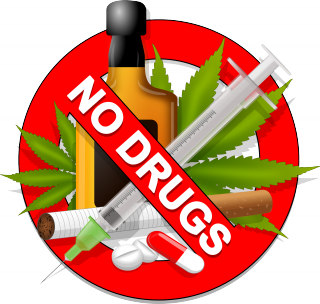Addiction
One Billion People Share This Addiction. Are You Among Them?
The global statistics on substance abuse and addiction are surprising.
Posted May 13, 2015

A recent report by an international team of researchers brings together the most comprehensive and up-to-date statistics on addictive disorders around the globe. The current statistics on substance abuse and addiction in this report are surprising.
In a press release, the paper's lead author Linda Gowing from the University of Adelaide's School of Medical Sciences said, "The report found alcohol and tobacco are the most common addictions in most countries and they are also the most harmful. 11% of deaths in males and 6% of deaths in females are linked to tobacco each year globally. Alcoholism is associated with a range of health issues and takes years off someone's life."
The May 2015 study, "Global Statistics on Addictive Behaviours: 2014 Status Report," was published in the journal Addiction.
Legal Drugs Cause More Harm Than Illegal Drugs
University College London (UCL) Professor Robert West, an author of the report and Editor-in-Chief of the journal Addiction, which commissioned the report, said in a press release, "The most striking thing to emerge is how much more damage is done to society by legal drugs than illegal ones. It is a stark reminder of how the need to create shareholder value can work against global health and well-being."

If you are addicted to cigarettes, you are not alone. The addictive behaviors report found that 22.5% (1 billion people!) of the total adult population in the world regularly smoke tobacco. Internationally, 32.0% of men and 7.0% of women are addicted to cigarettes. Eastern Europe has the most smokers at 30.0% of adults, closely followed by Oceania at 29.5% and Western Europe at 28.5%.
If you are a smoker and want to quit, please check out my recent Psychology Today blog posts, "What Triggers Cravings?" and "The Neuroscience of Making a Decision."
Globally, about 5% of the world's adult population (240 million people) have an alcohol use disorder. This breaks down to 7.8% of men and 1.5% of women. Alcohol use is estimated to result in the loss of 257 years of life per 100,000 in the total population.
If you'd like to read more about the increasing trend of binge drinking in the United States and the detriments of alcohol abuse, check out my recent Psychology Today blog post, "The Psychological Damage of Alcohol Abuse Can Be Lethal."
There are huge regional differences in alcohol consumption around the globe and domestically. The heaviest drinkers in the world were found in Eastern Europe where 13.6 liters of alcohol is consumed per head each year. This was followed by Northern Europe at 11.5 liters. On the flip side, central, Southern and Western Asia have the lowest alcohol consumption with an average of 2.1 liters per person each year.

It was difficult for the researchers to obtain reliable data on illicit drugs such as heroin and cannabis, but the number of people using intravenous drugs is estimated to be around 15 million worldwide and regular cannabis use was estimated to be 3.5% of the global population. North and Central America with the Caribbean have the highest rates of injecting drug use at 0.8% of the population, which is more than twice the rate in Northern Europe at 0.3%.
Conclusion: "Harm Reduction" and "Motivational Interviewing" Are Effective Treatment Options for Addiction

Tobacco and alcohol use are by far the most prevalent addictive behaviors in the world and cause the majority of harm. It's impossible to put a dollar amount on the repercussions of substance abuse. If you think you have a problem with substance abuse, there are a variety of treatment options available.
Focusing more on "person-specific cues" as opposed to "substance-specific cues" along with "Motivational Interviewing" have recently been found to be the most effective ways to quit smoking.
Traditionally, complete abstinence has been the modus operandi for treating alcohol abuse or dependence. However, there is a growing movement toward “harm reduction” by many addiction specialists. If you'd like to read more on this, please check out my Psychology Today blog post "Hyperactive Dopamine Response Linked to Alcoholism."
Linda Gowing concluded, "Bringing all this data together has been very challenging but having this global snapshot in one accessible resource should prove invaluable for policymakers and researchers."
© 2015 Christopher Bergland. All rights reserved.
Follow me on Twitter @ckbergland for updates on The Athlete’s Way blog posts.
The Athlete’s Way ® is a registered trademark of Christopher Bergland.




